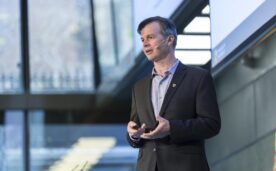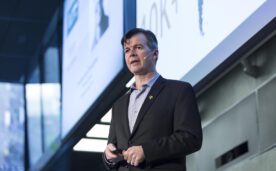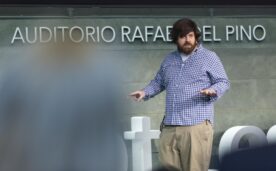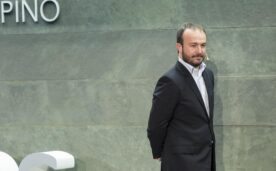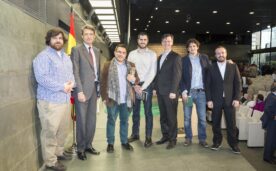On 18 April 2016, the Rafael del Pino Foundation and Singularity University organised the conference "Disruptive Innovation. The solution to humanity's greatest problems through technology", to be given by Thomas Kriese, Singularity University Vice President, Community Development & Engagement.
Thomas Kriese is a technology executive specialising in the design, development and management of systems that enable commercial strategies and large-scale online communities. In his area of expertise, he notes that advances in this area and in different technologies have had a major impact on the development of innovation as the global community uses technology to its advantage. His clients include Nike, National Geographic, Eli Lilly and Company, Genentech, the Rockefeller Foundation, John S. and James L. Knight Foundation, Alliance for Financial Inclusion, and Blue Shield of California Foundation.
Following his speech, our guest will develop a dialogue with
Jacobo ElosuaFounder of Civio and Iris AI.
Ignacio Hernández MedranoFounder of Savana and Mendelian.
Diego SoroaFounder of Cuantics Creatives and Wuzzin.
Miguel A. LuengoFounder of MalariaSpot and Chief Data Scientist of UN Global Pulse.
Regina NjimaManager Singularity University, Global Inpact Competitions (moderator)
The challenge we have posed this year in the Call to innovation competition that we are developing with Singularity University is: how would you solve one of Spain's major problems and improve the lives of 10 million Spaniards through technology?
The two winners of this competition, who will be announced at the end of the meeting, will receive a scholarship, valued at 24,000 euros each, to participate in the postgraduate programme (Global Solutions Program) at Singularity University during the summer of 2016, at NASA headquarters in Ames Park in Silicon Valley (USA).
The Singularity University programme has as professors and speakers some of the most important technology entrepreneurs, such as the founder of Google, Larry Page, technology pioneers such as Vint Cerf -one of the fathers of the Internet-, astronauts such as Buzz Aldrin, Nobel Prize winners, etc.
